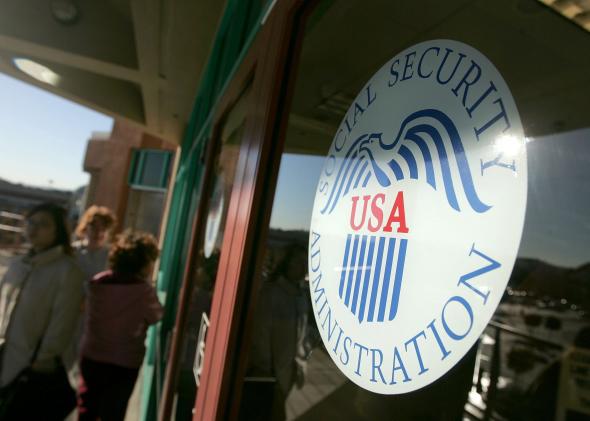Uncle Sam might be the country’s most morbid debt collector.
In a story that seems destined to become Fox News fodder, the Washington Post reports today that the Treasury Department is seizing IRS refunds from hundreds of thousands of taxpayers this year to pay off old Social Security debts that, in some cases, might have belonged to their deceased parents.
The Post is unclear on exactly how many grown children are now being asked to pony up on behalf of dear Mom and Dad. But it seems to be more than a few. The 2008 Farm Bill gave the Treasury Department permission to collect on debts more than 10 years old, and since 2011, it’s been doing so with gusto. This year, the Social Security Administration has found 400,000 taxpayers who, it says, collectively owe $714 million to the government for debts that have been lingering more than a decade.
One such individual is Mary Grice, whose widowed mother used Social Security survivor’s benefits to help raise her and siblings in the 1960s. Apparently, the feds overpaid someone in the family in 1977. And with her mother now passed away, the Treasury has garnished Grice’s refund to cover the bill. According to the Post:
Social Security officials told Grice that six people—Grice, her four siblings and her father’s first wife, whom she never knew—had received benefits under her father’s account. The government doesn’t look into exactly who got the overpayment; the policy is to seek compensation from the oldest sibling and work down through the family until the debt is paid.
This does not inspire confidence insofar as we expect the government to apply fair, not completely arbitrary, standards to debt collections. Technically, there’s a chance the money might have been paid to Grice (survivor’s benefits, to be clear, are sent to children). But in that case, we’re talking about money her mother likely would have spent, and perhaps not on her. Other taxpayers told the Post that the government had garnished their refunds, even though it couldn’t provide any actual records of their debt, and that they’d never been informed about what they owed because the government sent notices to the wrong address.
Even if a whole family benefited from a Social Security check, the idea of seizing money from a child to pay the debts of a parent would probably make most a bit queasy. (There are good reasons we don’t let the private sector do it.) What I find simply befuddling, though, is the cost-benefit analysis behind pursuing these cases at all. On the one hand, Social Security is expected to be watchful about waste and fraud—the sort of things that Congress members get exercised about. On the other, $714 million is an essentially negligible amount of money, considering it covers debts dating back decades. Nor does there seem to be particularly good documentation of who owes what here. So on the one hand, the government is trying to balance the rights of the taxpayers, who stand to gain relatively little. On the other hand, the government is intruding, violently, into the financial lives of people who may have done nothing wrong, while provoking a court fight (Grice, for instance, has lawyered up) and some bad PR in the process. It seems like a no-win to me.
